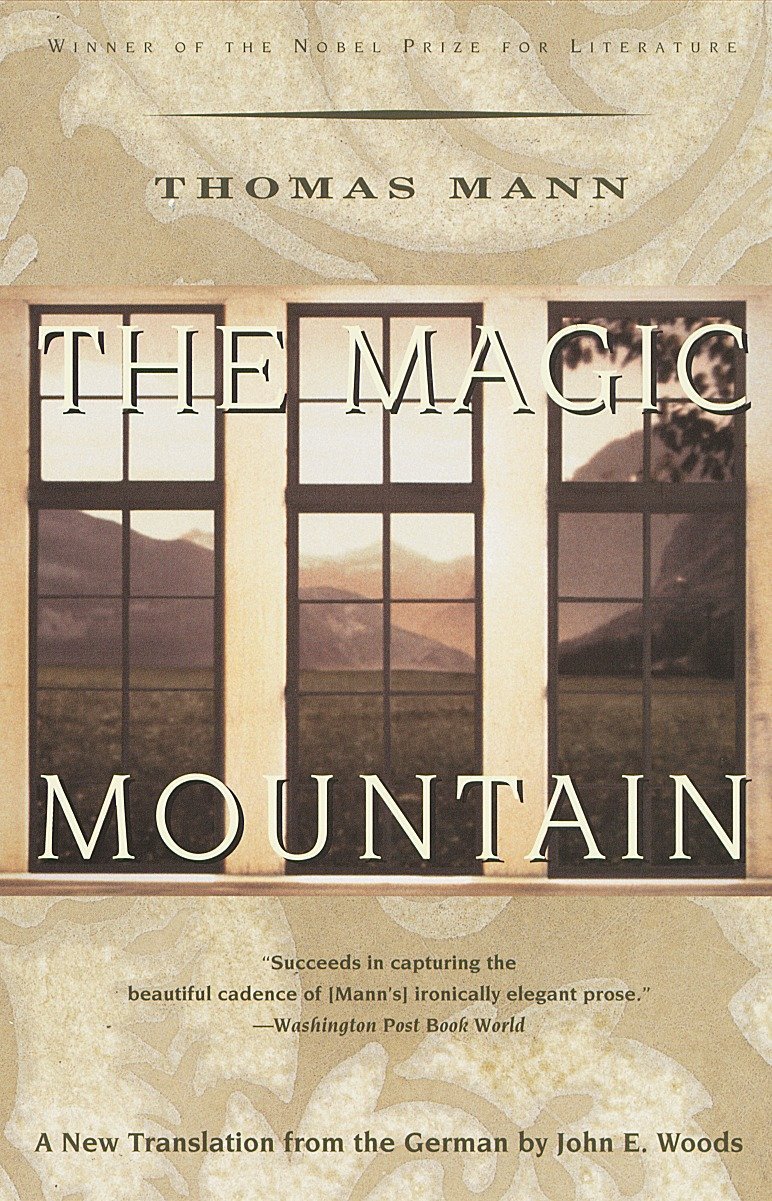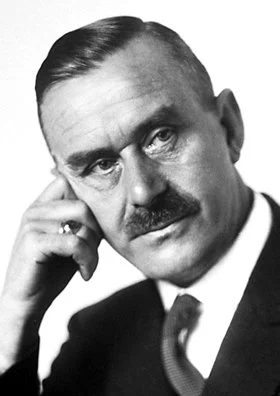BIG READS (Update #2)
The Magic Mountain
Thomas Mann
I’ve just finished Thomas Mann’s ‘The Magic Mountain.’ It’s taken forty years to get around to it. I first heard about it from my Mum, who took it out of the library some time in the early 1980s and complained to me about all the passages in untranslated French it contained. I made a mental note that I had to read it some day, but later it went out of print, and there never seemed to be any way to get a hold of it. Even at the end of last year when I was ordering books for my big reads project, it was a little tricky to come by.
Anyone wanting to give it a go should avoid the Vintage version, which is an old 1920’s translation - the very one my Mum had! Strangley enough, the most modern translation (by John E Woods) is published by Vintage International. Very confusing.
First appearing in 1924, this large 700-page novel of dense, long paragraphs is set in the years prior to World War One. A young man from the north of Germany, Hans Castorp, arrives in Switzerland to visit his cousin, Joachim, who is taking a cure fur his tuberculosis at the Berghof, a high-altitude sanitorium of the type that were common in this period.
Initially intending to stay for just three weeks, it soon transpires that Castorp has the disease too, and so becomes one of the regulars, joining the strange isolated community of the sick, an odd assortment of characters from all corners of Europe.
Here, he takes to pondering the nature of time (a main theme of the novel), falls in love with a fellow patient, the Russian Clavdia Chauchat, and is taken under the wing of the philosophising intellectual Settembrini, later joined by his radical counterpart Naphta who present the young Castorp with a wide range of competing ideas.
Although one might think that a tale set among the sick and dying might be depressing, it is far from that, being more akin to a black comedy. One even begins to wonder whether the ‘rest cure’ prescribed by the chief doctor Behrens is little more than a scam, with patients having their stays continually extended, no doubt at high cost, given the vast amount of food these people seem to consume in the excessive number of meals.
I liked the book immediately, found it an engrossing read and was at times deeply moved, in particular by events concerning Madame Chauchat. (Incidentally, the author’s choice of this name intrigues me - perhaps only a history nerd like myself would recognise this as the name of the French army’s light machine gun during World War One - is this significant?).
At first I was going to award this tome a 9, but after finishing I bumped it up to a full 10. It’s a great work of literature, intriguing, enthrallng and quite educational. I’m not sure why this isn’t better known or more widely read: yes, it’s a little challenging and not for everyone, but so are many of the ‘great’ books.
The only minor quibble I had was with the lengthy and detailed intellectual arguments between Settembrini and Naptha. I undertand the point is that the main concerns of the era are being put before Hans, but these dense paragraphs were quite hard to follow at times (my own deficiencies the cause, no doubt), and I can’t help feeling as if Mann was also partly trying to show off his vast knowledge.
In the end I just had to give it a 10, despite my slight criticisms mentioned above: it’s a such a unique and strange work that really takes you into a different realm, both temporally, physically and intellectually.
And so let’s finish with the current ‘scores’ in my Big Reads project:
James Joyce - Ulyssess 10/10
Miguel de Cervantes - Don Quixote 8/10
George Eliot - Middlemarch 10/10
Thomas Mann - The Magic Mountain 10/10
Next up, Ann Radcliffe’s gothic masterpiece ‘The Mysteries of Udolpho.’


